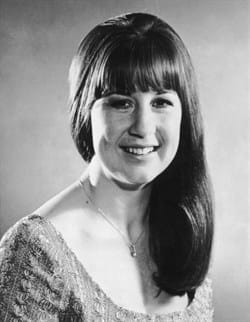Weekend Intermission is our regular feature where we look at an artist or band not from the Nordic countries. Today’s selection was incontrovertible, following the announcement of the death of Judith Durham.
I don’t usually write obituaries and this isn’t one but I couldn’t let the passing of Judith Durham slip by without observation. Two Melbourne institutions came to an end this week; TV soap Neighbours and the chanteuse per excellence from Essendon.
When I was a kid and the likes of the Beatles, the Stones and the early Manchester bands like The Hollies and Herman’s Hermits were vying for my attention and I had precious little interest in folk music there was something about The Seekers and especially the voice of Judith Durham that attracted me. (All of the last three bands mentioned are still going, believe it or not).
Their music was so sugary that it wasn’t something you could easily talk about with your mates. Instead, you clandestinely retained it as a sort of guilty pleasure. I’m sure I wasn’t the only one. And it stuck with me.
Both the Australian band and Judith Durham came along aeons before the fame-for-15 minutes likes of many of The X Factor hopefuls, belonging to the era of Hughie Green and his ‘Opportunity Knocks’ programme and ‘New Faces;’ both long gone but which unearthed many memorable artists.
They are testimony to both the longevity and the quality of some of the bands of that era that they have lasted this long and are still held in such high esteem. The Seekers did break up in 1968 but had reformed on several occasions since. They had been considering ways to commemorate their 60th Anniversary, this year.
The Seekers became the first Australian pop music group to achieve major chart and sales success in the United Kingdom and the United States and have sold over 50 million records worldwide. Judith Durham, who had classical vocal training as a child and also performed blues, gospel and jazz, had a formidable solo career from the 1970s through to quite recently.
I won’t say any more, her biography, and that of The Seekers, are easily accessible online through the usual channels such as Wikipedia. What I will say is that in the almost eight years I’ve been writing about music Judith Durham is one of the most frequently named artists I’ve invoked as a role model for aspiring female singers, in the Nordic countries or anywhere else.
The quality of her soprano voice, what Elton John referred to as “the purest in pop,” has long been legendary, to which I must add her diction – you can hear every single word she sings as if she’s stood right next to you. If someone proposed that she was the greatest female pop vocalist of all time (and someone will this week) I wouldn’t argue.
Beyond that she was, by all accounts a genuinely nice person, humble, modest and self-effacing, who spent much time working on behalf of charities.
Earlier this year Australia gave cricketing legend Shane Warne a state funeral and I’ll lay odds they will decide to do the same for Judith Durham, possibly even before you read this.
To paraphrase two of The Seekers’ most famous songs The Carnival isn’t over; it merely continues in the Promised Land.
And as for “I’ll never find another you,” in Judith Durham’s case we probably won’t.




